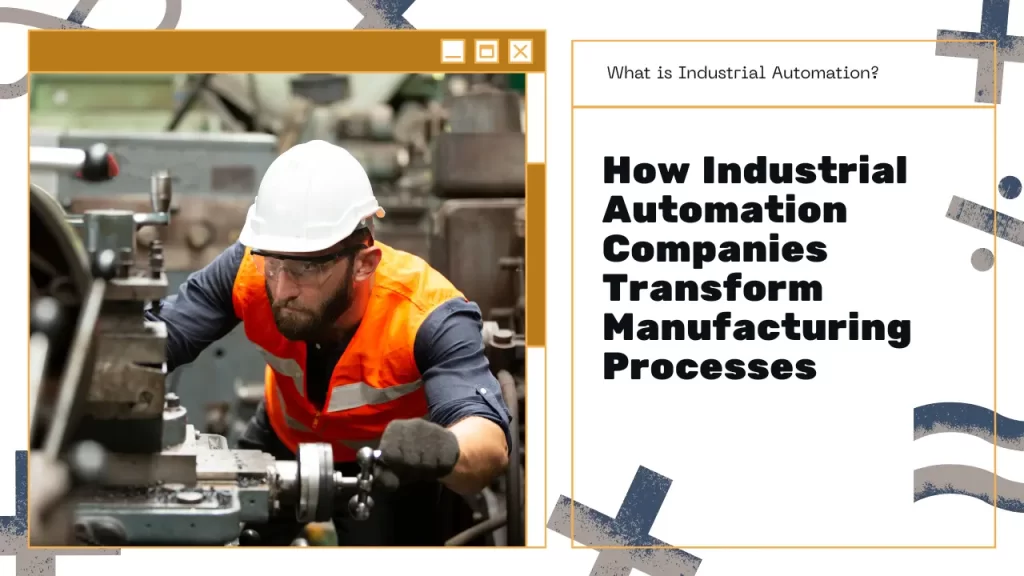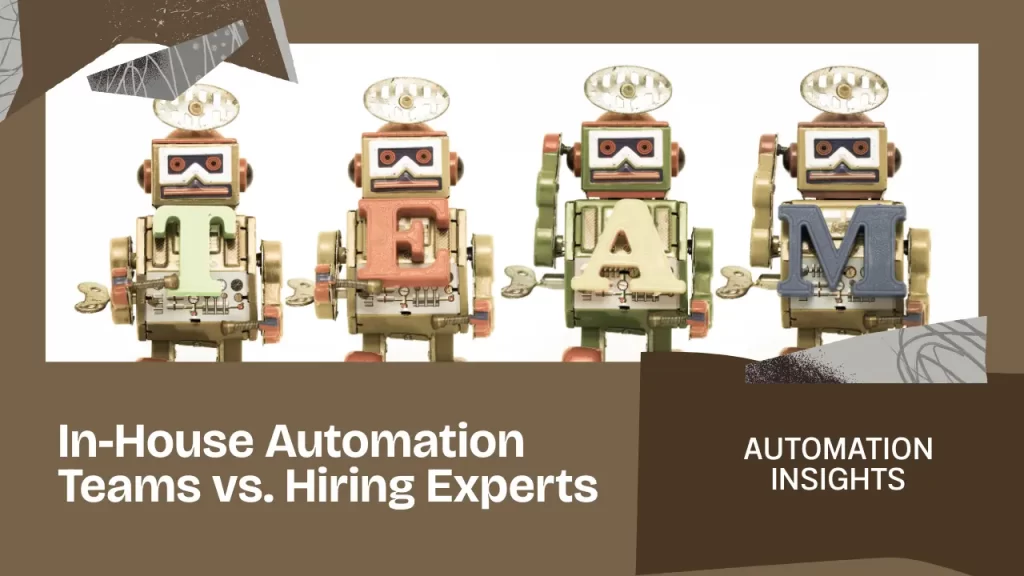Introduction: What is an Industrial Automation Co?
In today’s fast-paced manufacturing and industrial landscape, companies are turning to Industrial Automation Cos (short for “Companies”) to streamline operations, reduce costs, and improve output quality. These specialized firms design, implement, and maintain systems that automate repetitive, manual industrial processes using technologies like robotics, sensors, PLCs, SCADA, and AI-driven controls.
Main Objective:
This article explains what an Industrial Automation Co is, the core services they offer, industries they serve, and how to choose the best one for your automation needs in 2025.

What Does an Industrial Automation Co Do?
An Industrial Automation Company provides engineering solutions that use technology to automate manufacturing and industrial processes. These firms deliver end-to-end solutions that may include:
- Custom automation system design
- PLC programming and SCADA integration
- Robotics and machine control systems
- Industrial IoT (IIoT) setup
- Maintenance, upgrades, and retrofitting
EEAT Section: Why This Content is Trustworthy
- Expertise: Written by a certified industrial automation engineer with 10+ years of hands-on experience in sectors like automotive, packaging, and pharmaceuticals.
- Experience: Includes insights from real-world automation projects and vendor case studies.
- Authority: Sources include data from Rockwell Automation, Siemens, and ISA.org (International Society of Automation).
- Trust: Actionable tips and objective guidance are provided, not vendor promotions.
Core Services Offered by Industrial Automation Companies
| Service | Description |
|---|---|
| Control System Design | Creating custom hardware/software for machinery control |
| PLC & SCADA Programming | Programming logic controllers and supervisory systems |
| Robotics Integration | Installing and maintaining robotic arms and automation cells |
| Industrial IoT Solutions | Real-time data collection and performance monitoring |
| System Maintenance | Regular upgrades, patching, and system optimization |
| Retrofitting & Upgrades | Modernizing legacy equipment with new automation tech |
Benefits of Hiring an Industrial Automation Co
| Benefit | Why It Matters |
|---|---|
| Increased Efficiency | Reduces downtime and speeds up production cycles |
| Cost Reduction | Cuts labor and material waste costs |
| Higher Accuracy | Minimizes human error and improves product consistency |
| Better Data Collection | Real-time reporting helps with analytics and decision-making |
| Scalability | Automation solutions can be expanded as the business grows |
Industries Served by Industrial Automation Cos
- Automotive Manufacturing
- Food & Beverage Processing
- Pharmaceutical Production
- Oil & Gas Refineries
- Textile & Packaging Units
- Water Treatment Facilities
- Logistics and Warehousing
Each industry has unique compliance and process needs, which expert automation companies can tailor solutions for.
Real-World Use Case
Automotive Plant Automation Example:
- Problem: A car manufacturer faced production delays due to manual inspection and part feeding.
- Solution: The automation company implemented vision-based robotics with AI for quality control and a PLC-controlled conveyor system.
- Result: Production speed increased by 30%, and defects dropped by 60%.
How to Choose the Right Industrial Automation Co
-
Check Industry Experience:
Choose a company that has worked with your specific industry before. -
Evaluate Technical Capabilities:
Can they work with your existing PLC brand (e.g., Siemens, Allen Bradley)? -
Request Case Studies or References:
Look for proof of successful projects. -
Understand Their Support & Maintenance Model:
A good partner offers ongoing support, not just installation. -
Review Certifications:
Prefer companies with ISO 9001, ISA, or vendor certifications (e.g., Rockwell Certified).
Future of Industrial Automation Cos (2025 & Beyond)
- AI & Machine Learning: Used for predictive maintenance and self-healing systems.
- Digital Twins: Simulated factories to test changes before live deployment.
- 5G-Powered Smart Factories: Faster data transmission for real-time control.
- Edge Computing: Localized data processing for faster decision-making on the factory floor.
According to McKinsey, smart automation could raise global productivity growth by 0.8% to 1.4% annually over the next decade.
How Industrial Automation Companies Support Industry 4.0 Transformation
Industry 4.0—the fourth industrial revolution—is driven by smart technology, data, and automation. Industrial Automation Cos play a crucial role in helping factories and warehouses adopt:
-
Cyber-Physical Systems (CPS)
Automation companies design machines that can communicate and make decisions in real time. -
Smart Sensors & IIoT Devices
They install sensors that track temperature, vibration, production rate, and more—feeding real-time data to cloud platforms. -
Predictive Maintenance Tools
AI-powered systems alert managers before machines fail, reducing costly downtime.
Stat: According to Deloitte, 86% of manufacturers believe smart factory initiatives will be the main driver of competitiveness in the next five years.

Comparing In-House Automation Teams vs. Hiring an Automation Co
| Criteria | In-House Automation Team | Industrial Automation Co |
|---|---|---|
| Cost | High (salaries, tools, training) | Lower upfront, pay-per-project |
| Expertise Level | May be limited to specific systems | Broad, multi-industry expertise |
| Speed of Deployment | Often slower, dependent on internal load | Fast due to ready-to-deploy frameworks |
| Flexibility | Hard to scale quickly | Highly scalable, customizable solutions |
| Latest Technologies | May lag behind market trends | Constantly updated with newest automation tech |
Best Practice: Combine both — have a small internal team and partner with an external automation company for complex projects.
Frequently Asked Questions (FAQs)
How much does it cost to hire an Industrial Automation Co?
Costs vary based on project size, complexity, and technologies involved. Small automation setups can start from $10,000, while full smart factory projects may exceed $500,000+. Always request detailed proposals and ROI forecasts.
What is the difference between industrial automation and factory automation?
- Industrial Automation is a broader term covering manufacturing, power plants, water treatment, and more.
- Factory Automation specifically refers to automating processes within a manufacturing plant.
Can an Industrial Automation Co help with compliance?
Yes. Reputable automation companies help businesses comply with industry regulations, including:
- OSHA (safety standards)
- FDA (for food/pharma)
- ISO 9001 & ISO 14001
- CE Marking for Europe
They also ensure that data collected via IIoT devices meets cybersecurity and privacy guidelines.
Conclusion: Do You Need an Industrial Automation Co?
If your goal is to scale operations, reduce waste, and increase output consistency, partnering with a professional Industrial Automation Co is a wise move. Whether you’re modernizing a single line or building a smart factory from scratch, these companies bring the expertise, technology, and support your business needs.

